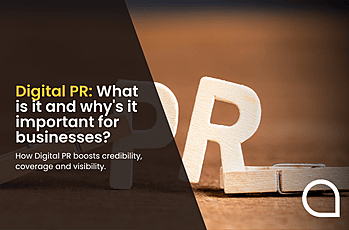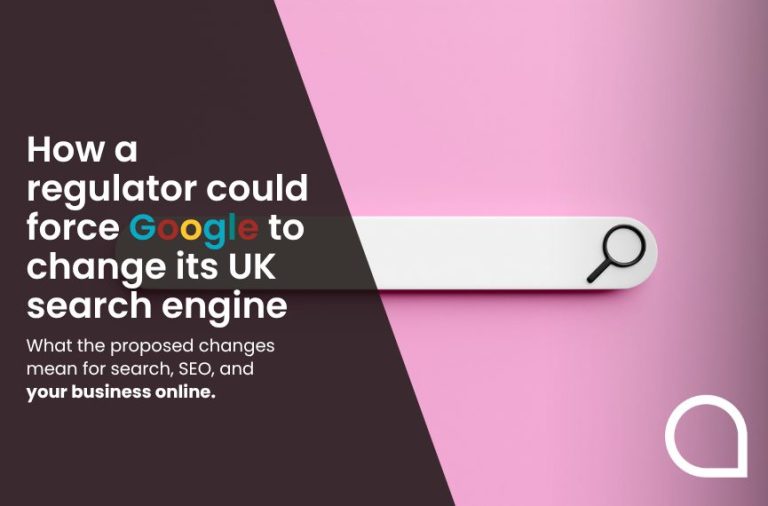Contents
[What exactly is a marketing budget?]
[Why do I need a marketing budget?]
[How to calculate a marketing budget]
[How do you choose a marketing budget?]
[Which factors affect how much you should allocate to a marketing budget?]
[What is the average marketing budget for a small business?]
No matter the size or scale of your business, setting a marketing budget can be a challenge.
Fortunately, as digital marketing experts with decades of experience in this industry, the Aqueous Digital team can help you to understand exactly how businesses calculate their marketing budget.
Alongside highlighting the different methods that can be used to calculate the budget, we also explain why marketing budgets are important, how they should be structured, and how much money small businesses typically allocate to their marketing budget.
Alternatively, if you’d like to find out more about our professional digital marketing services and how they can be included in your marketing budget, please feel free to contact our friendly team today.
What exactly is a marketing budget?
As the name suggests, a marketing budget is the amount of money a business has set aside to spend on marketing activities. Most companies will create marketing budgets either quarterly or annually, and will track their expenditure on a monthly basis to ensure they’re not going over budget.
You marketing budget should outline the different marketing initiatives you plan on utilising to achieve your goals and how much they’re likely to cost.
Whether that’s offline marketing in the form of leaflets and networking or online marketing, like social media marketing or Search Engine Optimisation (SEO), all activities should be included in this budget.
Ultimately, including as much detail as possible in your marketing budget is ideal. Not to mention, plans can, and often do, change in the ever-evolving world of business, so building in a certain degree of flexibility to your marketing budget can help to prevent over-expenditure.
Why do I need a marketing budget?
A comprehensive marketing budget is essential for every business – regardless of its size, location, or industry. It helps the company to achieve their wider business goals by planning and managing the costs of their marketing activities.
For example, if a business wanted to focus on improving their online visibility to help drive traffic to their website, their marketing budget might dedicate a large proportion of their funds to SEO services.
Not to mention, the creation of a marketing budget is also instrumental in helping the business to track and measure its marketing performance. Each activity should have a cost associated with the campaign, allowing you to easily calculate crucial metrics like your marketing Return on Investment (ROI).
How to calculate a marketing budget
There’s no set rule for calculating a marketing budget. Instead, there are a couple methods that you can use to help determine a budget based on the size, goals, and scale of your business. For support choosing the right calculation method for your company, simply carry on reading to learn more about each one.

Set percentage of revenue
Dedicating a certain percentage of their business revenue is typically the most common way that companies calculate their marketing budget. However, this figure varies significantly between 2-20% of their revenue (all income before expenses are deducted).
Based on Deloitte data, an estimated 13.6% of a company’s total budget was dedicated to marketing activities in 2023. As a result, you may want to conduct competitor research and take into account both the size of your company and your stage of growth to help you choose an appropriate percentage.
For example, if you’re eager to boost your sales, investing a higher percentage of your revenue in marketing can be advantageous. This is in line with the findings from an American Marketing Association study which found evidence that the growth in overall marketing budgets over a year-long period led to an increase in revenue in the same time frame.
A primary benefit of adopting this approach is that there’s no fixed budget. Instead, it will simply vary each quarter or year according to your revenue. This can help to prevent over-spending and allows your marketing budget to grow in line with the expansion of your business.
Fixed budget
Fixed marketing budgets are more common among smaller businesses and start-ups that want to exercise caution around how they spend their money. This is often because they don’t have a sales history to help them determine their expected revenue.
For example, if a business is in its first year of operating, it may decide on a modest sum of £1000 to fund a small marketing campaign or event. From here, you can analyse the results to determine whether it was a successful approach or you need to explore alternative marketing initiatives.
By taking into account the estimated marketing budget of your competitors, the overall income of your business, and your specific marketing goals, you can calculate the most suitable fixed budget for your company.
How do you choose a marketing budget?
Managing a marketing budget isn’t straightforward – no matter how long you’ve been in business. Luckily, the digital marketing professionals at Aqueous Digital can help to point you in the right direction with our easy-to-follow steps below.

Decide between quarterly or annual budgeting
The first step to managing a marketing budget is to determine the budgeting period. Some businesses set their marketing budget on an annual basis, while others adopt a quarterly approach – the right one for you will depend on your company’s size, scale, and goals.
A quarterly budget can help you to ensure your projections are closely aligned with your actual spending throughout the year. Setting a quarterly marketing budget may therefore be a better idea if you’re looking for greater financial visibility and adaptability.
Choose your marketing goals
Once you’ve settled on a budget, for either the year or quarter, you’ll need to review your marketing goals. Marketing can be used to achieve a wide variety of goals, including driving brand awareness, increasing traffic, and generating more leads, so choosing one or several key aims is important.
After pinpointing your marketing focus, you can start to explore the different activities that can help you to obtain this goal. For example, if your key marketing objective is to improve your position in the SERPs (Search Engine Result Pages) with a view to driving organic traffic, you should consider SEO services.
Calculate your marketing costs
Now that you’ve identified which marketing initiatives can help you to achieve your goals, you can begin to estimate their costs. You must take into account all expenses, including employee salaries, the cost of essential tools and software, and the price of using any marketing agencies or outside support.
From here, you can then decide whether to set yourself a fixed marketing budget or a certain percentage of your business revenue. Both options have their individual benefits and lend themselves to businesses at varying sizes and stages of growth.
Which factors affect how much you should allocate to a marketing budget?
Unfortunately, there’s no set formula for allocating a marketing budget for your business – the one-size-fits-all approach simply won’t work in this case. Instead, the size, scale, industry, and goals of your company will all play a role in the size of your budget.

Industry
Different industries will require varying levels of investment in their marketing activities.
For example, figures from the Statista Research Department (gathered from a 2023 UK survey of marketing leaders) found that some industries, namely the consumer packaged goods and real estate industries, allocated more than 20% of their companies’ budgets to marketing expenses.
This is a significant difference when you compare it to the 3% marketing budget of the pharma biotech industry or the 5% budget for the consumer services industry. If you’re unsure how much to allocate for your marketing budget, it’s well worth researching the average for your industry specifically.
Growth stage
When it comes to determining the marketing budget allocation, your growth stage should be at the forefront of your thoughts. This is because well-established businesses typically don’t need to spend as much of their revenue on marketing as they’re already well-known to their target audience.
Conversely, new businesses are often encouraged to dedicate significantly more of their revenue towards marketing activities. This boosted budget allows them to position their brand in front of potential users or consumers and create a name for themselves – something their well-established competitors are already benefiting from.
Marketing goals
Naturally, your marketing goals will have one of the greatest impacts on your marketing budget allocation. Some objectives, such as increasing brand awareness, can only be achieved with substantial investment in the form of more costly advertisements, events, and promotions.
While brand awareness can be achieved using more cost-effective marketing initiatives, like social media campaigns, setting aside a larger marketing budget allocation for this goal can be crucial to driving early brand recognition.
Target audience
Both the size of your business and your target audience will have a huge impact on your marketing budget. For example, global companies with a worldwide audience will endeavour to reach a larger audience and therefore require a significant marketing budget.
Smaller, more local businesses on the other hand, won’t need to dedicate the same kind of resources to their marketing activities. Instead, they can focus their efforts on reaching out to a much smaller audience of local potential customers.
What is the average marketing budget for a small business?
While, there are many factors that can impact the marketing budget of a small business, according to a Gartner CMO survey, the average marketing budgets for small businesses in the UK stands at 7.7% of their overall revenue in 2024.
This means if a business was making an overall revenue of £100K a year, their annual marketing budget allocation would be £7.7K. It’s important to bear in mind, however, that every business is different, so all relevant factors should be taken into consideration.
How to structure a marketing budget
When it comes to structuring a marketing budget, you must align the structure with your goals. For example, if your aim is to drive brand awareness and positioning, you’re likely to allocate more of your budget to PR (Public Relations), but how do most businesses structure their marketing budget?
Well, according to a 2023 CMO survey, companies spend a huge 53.8% of their marketing budgets on digital marketing activities. This is echoed in many other studies which find digital marketing to take up at least 50% of most marketing budgets.
For many companies, this comes as no surprise as the broad sphere of digital marketing includes many effective channels such as paid search, social media advertising, event marketing, sponsorship, SEO, and TV.
If you want to follow in the footsteps of other businesses, the structure of your marketing budget should therefore focus heavily on digital marketing activities – something the SEO experts at Aqueous Digital can help with.
Contact the digital marketing experts at Aqueous Digital
Keen to make the most of your marketing budget? Regardless of whether your key marketing aim is to increase organic traffic, improve your website’s online visibility, or boost brand awareness, we can help.
At Aqueous Digital, we offer a wide range of digital marketing services for businesses of all sizes and industries. Specialising in paid media, organic SEO, and reputation management for high-net-worth individuals, our approach is focused on delivering real results.
Our award-winning agency also provides clear pricing for all our services to make managing your marketing budget straightforward. If you’d like to learn more about our services or are keen to discuss your specific requirements with a member of our team, why not reach out today?
Eager to schedule your free, no-obligation consultation? Please feel free to contact our helpful and friendly team to find out how we can help your business to succeed!
We welcome calls to our freephone number on 0800 285 1424. Alternatively, you can also get in touch by sending your enquiry via email to hello@aqueous-digital.co.uk or by reaching out on social media.





